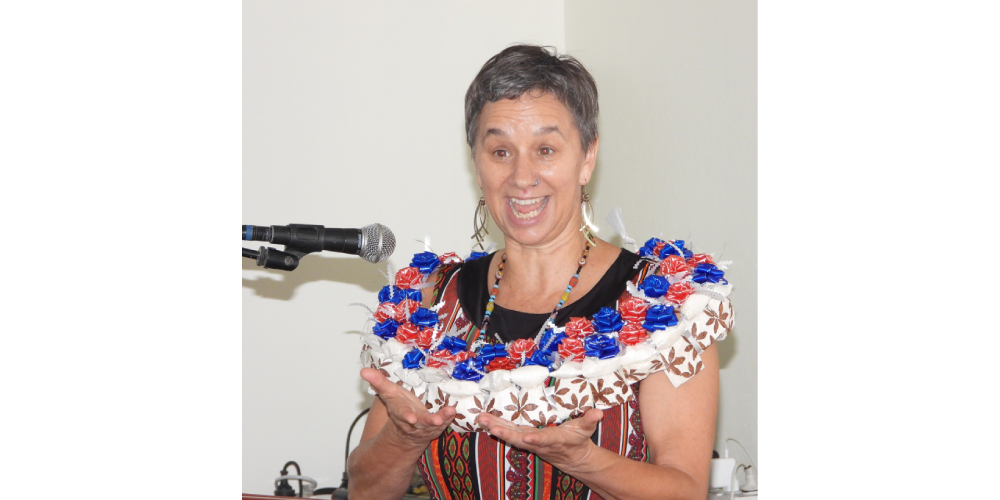Countries that have experienced conflict in the past possess the capacity to achieve peace, says Johanna Podlesak, Director of Pacific Programmes (South East Asia and Pacific) at Conciliation Resources.
Speaking to Solomon Star during the recent two-day Peacebuilding and Security Dialogue at the King Solomon Hotel, Ms. Podlesak emphasized the resilience of Pacific nations despite their histories of conflict.
“Many countries in the region have legacies of conflict, whether from colonial times, World War II, or more recent events such as the Bougainville crisis, the Fiji coups, or the tensions here in the Solomon Islands,” she said.
“However, what I have found through working with local organizations and communities is that there is an incredible capacity for peace. Whether in churches, community groups, or civil society organizations, there is a strong ability to unite people and foster dialogue based on peace principles,” she added.
Ms. Podlesak encouraged Solomon Islanders to recognize their own strengths in conflict resolution. She noted that the nation has a remarkable ability to analyze its challenges and work collectively toward solutions.
Reflecting on the two-day dialogue, she observed that despite differences in opinion among participants from the government, Non Government Organisations (NGOs), communities, and churches, they engaged in meaningful discussions.
“These discussions often tackle complex issues, but if everyone can harness this collaborative spirit moving forward, it offers great hope for the Solomon Islands,” she said.
She stressed the importance of inclusivity in peacebuilding discussions.
“The key question is: Who is sitting at the table? Are these dialogues inclusive? This Peacebuilding and Security Dialogue was an excellent start, bringing together representatives from government, civil society, churches, men and women, youth, the arts sector, and people with disabilities,” she noted.
“Future discussions must ensure that all voices are heard to develop joint solutions for sometimes very complicated problems,” she added.
Ms. Podlesak, who has spent eight years in Jerusalem, Israel—a region embroiled in longstanding conflict with Palestine—was asked how Pacific conflicts compare to those in the Middle East.
She explained that while each conflict is unique, there are universal human desires.
“Every place has its own special history. In the Solomon Islands, different islands were impacted by colonialism in diverse ways, alongside variations in churches and religions. These factors contribute to a complex, and at times, challenging nation-building process,” she said.
“However, at our core as human beings, we all seek the same things: peace, security, a safe place to raise children, food security, and the ability to experience joy. These shared aspirations unite people across all conflict-affected regions,” she said.
Conciliation Resources, an international peacebuilding organization, operates worldwide, including in Africa, the Northern Caucasus, and Asia. In the Pacific, it has established programs in Papua New Guinea, Fiji, and is expanding its presence in the Solomon Islands.
By AGNES MENANOPO
Solomon Star, Honiara









